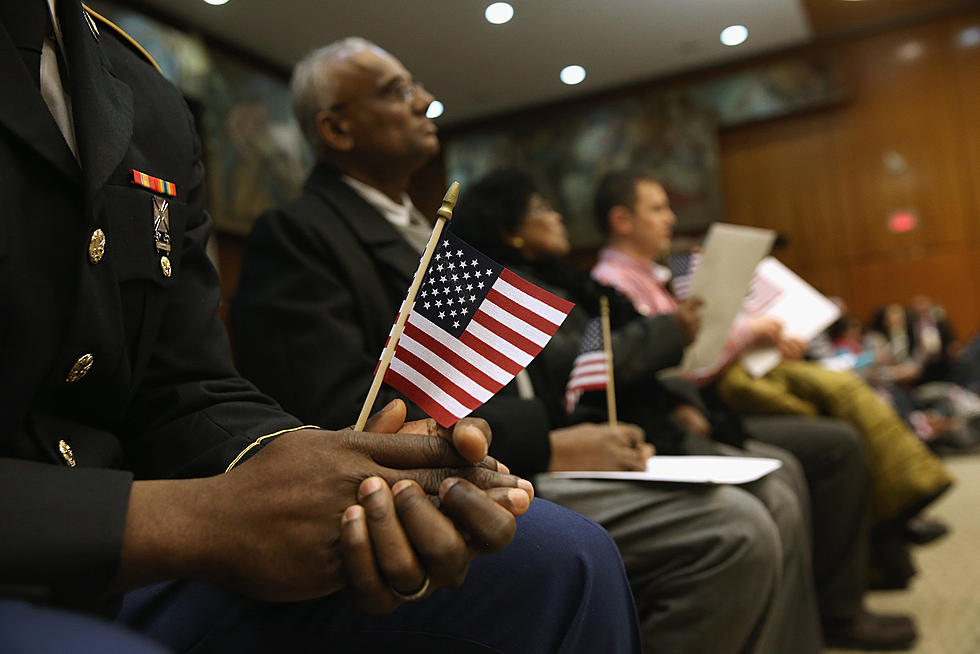
Census Head Count 2020 – It’s All About Money and Political Power!
We are one year away from the 2020 census and while Yakima residents and those in all other communities will be asked a battery of important questions, the question in the courts now is: Will we be asked to declare our citizenship status?
That hasn't been asked on the census since 1950 but the Trump administration wants it on the population survey and as might be expected, the reaction would indicate the world is coming to an end!
Lawsuits started flying with the announcement and NBC News reports that a collective of some two dozen lawsuits, led by New York Attorney General Eric Schneiderman, "argues that the question will depress responses in states with large immigrant populations...this would cause the census to run afoul of the "constitutional requirement" that the government fairly and accurately count all people in the country.....adding the question would stoke fear among immigrants, leading to an inaccurate population count that would threaten congressional seats and disrupt how billions of dollars in federal funds are allocated, particularly in blue states like New York, which has the third-largest immigrant population in the country after California and Texas."
Attorney General Schneiderman says it's all about the Benjamin's. "This is really just an effort to punish places like New York that welcome immigrants, that are accommodating to immigrants and embrace the American tradition of open arms for all...we stand to lose money because this determines congressional representation and the Electoral College. This is an affront to our national ideals and this is an affront to the constitution." What it is,is a threat to money and power for Democrats.
Commerce Secretary Wilbur Ross approved a late request from the Justice department for a citizenship question to be added in order to enforce protections against voting discrimination under the Voting Rights Act. But the plaintiffs cite Census Bureau research showing that immigration enforcement and what is described by some as growing anti-immigrant sentiments, asking about citizenship could scare households with non-citizens from participating altogether.
That in turn, could change the data that will be used to form the country's underlying power structures through 2030 and how many congressional seats, Electoral votes and an estimated $800 billion a year in federal tax dollars to fund schools, roads and other public institutions and services across the U.S. hang in the balance.
No wonder the Democrats in congress, governor's mansions and liberal big city mayors all want the greatest count possible because it is the direct way they get seats and funds beyond what other states with comparable citizen populations receive. That's right, non-citizens give greater influence to states over American citizens and if that doesn't seem right, join the club.
Here's a quick civics reminder. There are 435 congressional districts in the United States House of Representatives with each one representing approximately 711,000 people based on a Census apportionment population of 309,183,463 from 2010. Every 10 years the U.S. Department of Commerce's Census Bureau conducts the count used to determine the number of congressional districts within each state. So if you want to know why some states are fighting to keep the question off the survey consider this.
The census counts all people, legal or not and those numbers are what's used to determine a state's population. We can argue if that's just or not, if it devalues citizenship or not, but at this time it is legal, so for example, California, with an estimated 5-point-three million undocumented aliens, has what amounts to a population f non-citizens that gives them 7 more Congressional districts than it would have if citizenship was a requirement. Greater voting power, influence and federal money all pour into California because of its vast non-citizen population just as it does for Florida, Illinois, New Jersey, New York and Texas.
Some studies show the illegal population is down from a few years ago at about 11 million. However a recent survey from a researcher at Yale and Massachusetts Institute of Technology, estimates there are 22.1 million undocumented immigrants in the United States. Don't we deserve to know for sure?
The researchers emphasized the new number does not imply a growth in illegal immigration but a longstanding miscount of existing undocumented immigrants.
What might it all mean if we actually had an accurate count? Not sure, but it opens up a lot of possibilities to consider. One thing we do know, if the question scares off illegal alien participation in the census, the howls from Democrat strongholds will be deafening. Oral arguments before the Supreme Court are set for mid February.
More From News Talk KIT









